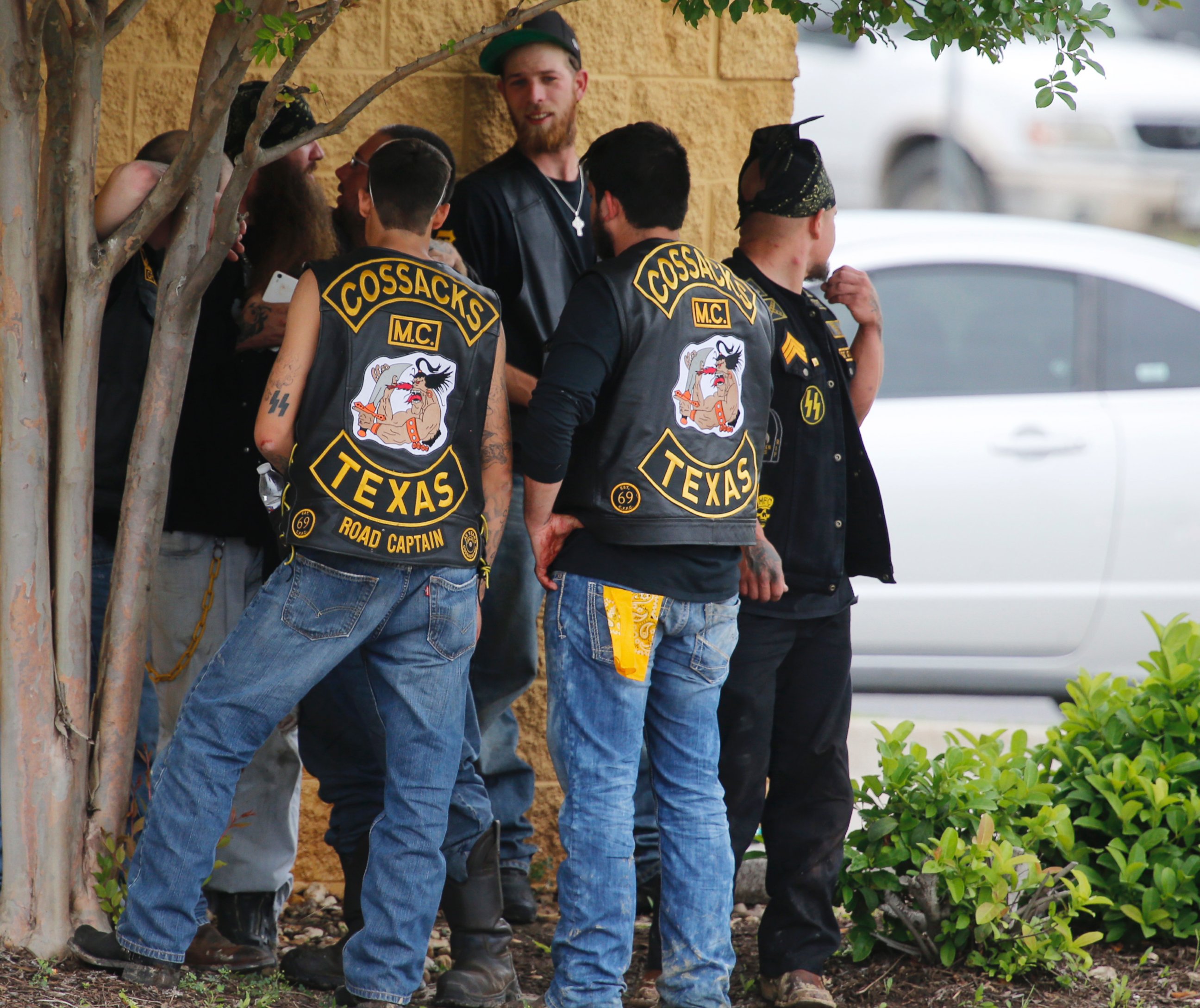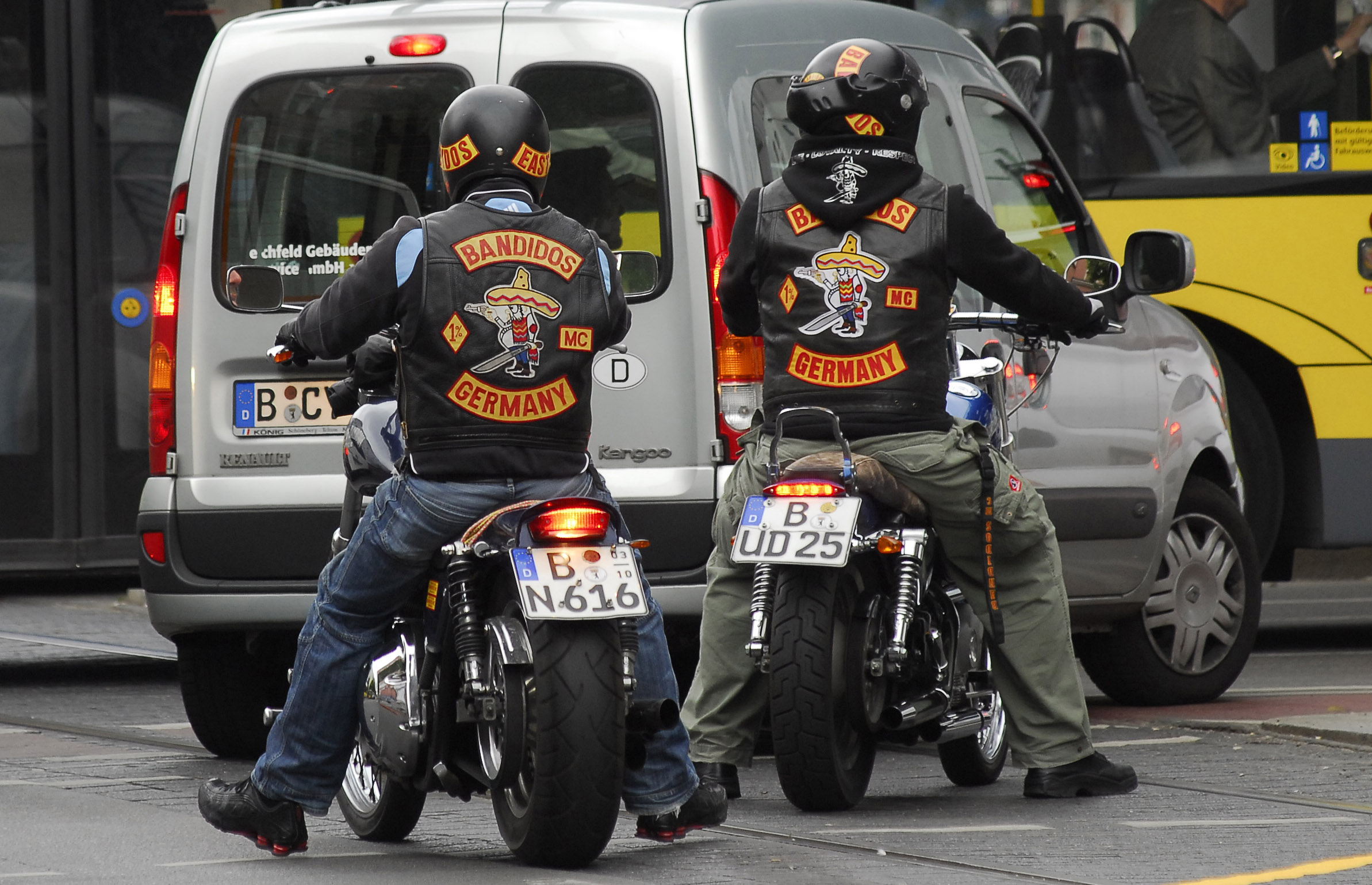Waco, Texas, Shooting: Take a Look Inside Biker Gang Culture
Gangs can "conduct violence at the drop of a hat," said a former informant.
— -- Following a deadly Waco, Texas biker gang brawl over the weekend, a pair of experts in biker gangs paint a picture of a culture revolving around territory, turf wars and the underlying sense that violence could break out at any moment.
Charles Falco, who was a confidential informant for the Bureau of Alcohol, Tobacco, Firearms and Explosives, said gangs "will conduct violence at the drop of a hat if they think someone is disrespecting who they are, their territory."
Members of as many as five biker gangs gathered at Twin Peaks Restaurant in the Central Texas Market Place Sunday to discuss their differences, according to Waco Police Sgt. Patrick Swanton. But then an "additional biker gang that was not invited to this meeting showed up," Swanton said. "Hence, what we were calling somewhat of a turf war, if you will."
Sunday's fight escalated to include knives and firearms as gang members fired at each other in the Twin Peaks parking lot, police said, adding that nine suspected gang members died and 170 were arrested.
According to Edward Winterwalder, who said he was a member of the Bandidos gang for six years, turf is everything for bikers.
"The reason it's a big deal goes back to when we were on the playground in the first grade, when you had two bullies on the playground and the playground wasn't big enough for the both of them to play on in the same area," Winterwalder said. "It's the same thing now. The clubs play better when they're not on the same territory together."
Swanton declined to name the gangs present Sunday, but photos of some of the bikers taken after the fight showed them wearing jackets with the names Cossacks and Scimitars. In addition, McLennan County Sheriff Parnell McNamara -- whose office is investigating the incident -- told The Associated Press all nine people killed were either members of the Bandidos or Cossacks.

Winterwalder claimed his former Bandidos chapter was not violent, but he added that the territorial feud between the Bandidos and the Cossacks gangs has been brewing for years as they fought over the right to claim Texas on their jacket.
"The motorcycle clubs are territorial in nature and that's reflected in the patches they wear on their back," he said. "Most wear a three-piece patch. The top rocker is usually, in almost all cases, is the name of the club. Center patch is the logo and bottom rocker is the geographic territory of where they are from.
"In this case, the Bandidos wore a Texas bottom rocker and the Cossacks wore a Texas bottom rocker and the Bandidos weren't very happy with that," Winterwalder said.
"The Bandidos have been on the top of the food chain in Texas for decades," Winterwalder said. "In 2014, the Cossacks put on the bottom rocker and the Bandidos said, 'Take it off,' and the Cossacks said, 'No.' And since then there have been stabbings in Abeline and what happened on Sunday."
Winterwalder was referring to a 2013 case in which two alleged Cossacks members were stabbed in Abilene, according to The Associated Press. Three other alleged gang members were shot, one fatally, in Fort Worth in December, the AP reported.
According to Falco, there is "a lot of violence caused by territorial arguments, or fights, or disrespect to their colors."
Falco said he wasn't surprised by how violent Sunday's fight became.
"It demonstrates how ruthless these biker gangs are," he said.
"Part of the biker gang lifestyle is committing crime," Falco added. "I’d say half are full-time criminals ... selling drugs, dope, prostitution, illegal gambling and any other crimes. For them, they’re outlaws. And that's what they are."
Looking forward, Winterwalder said, "I don’t think there’s any way of telling what’s going to occur in the future but I think the potential for more violence is there."

The Texas Department of Public Safety has classified the Bandidos as a Tier 2 gang -- the second most dangerous classification -- according to the most recent "Texas Gang Threat Assessment" report, released by DPS in April 2014.
"Although these gangs vary in size and structure, they are responsible for a disproportionate amount of crime across urban, suburban and rural areas of Texas," the assessment said.
According to the report, the Bandidos formed in the 1960s and "conducts its illegal activities as covertly as possible and avoids high-profile activities such as drive-by shootings that many street gangs tend to commit.
"However, members are not covert about making their presence known by wearing the gang colors, insignia and riding in large groups. They seek to turn public sentiment in their favor by organizing frequent charity runs. Bandidos are likely to focus on recruiting new members with no criminal history."
The U.S. Department of Justice identifies the Bandidos as one of the two largest "outlaw motorcycle gangs" in the U.S., with about 900 members in 93 chapters, making it similar in size to the Hell's Angels.
According to the Department of Justice website, the Bandidos are "involved in transporting and distributing cocaine and marijuana and are involved in the production, transportation and distribution of methamphetamine." The group is most active in the Pacific, Southeast, Southwest and West Central U.S.
The Cossacks and Scimitars are not listed on the Department of Justice's "Outlaw Motorcycle Gangs" page and were not mentioned in the 2014 "Texas Gang Threat Assessment."
ABC News' Phillip Mena and the Associated Press contributed to this report.

